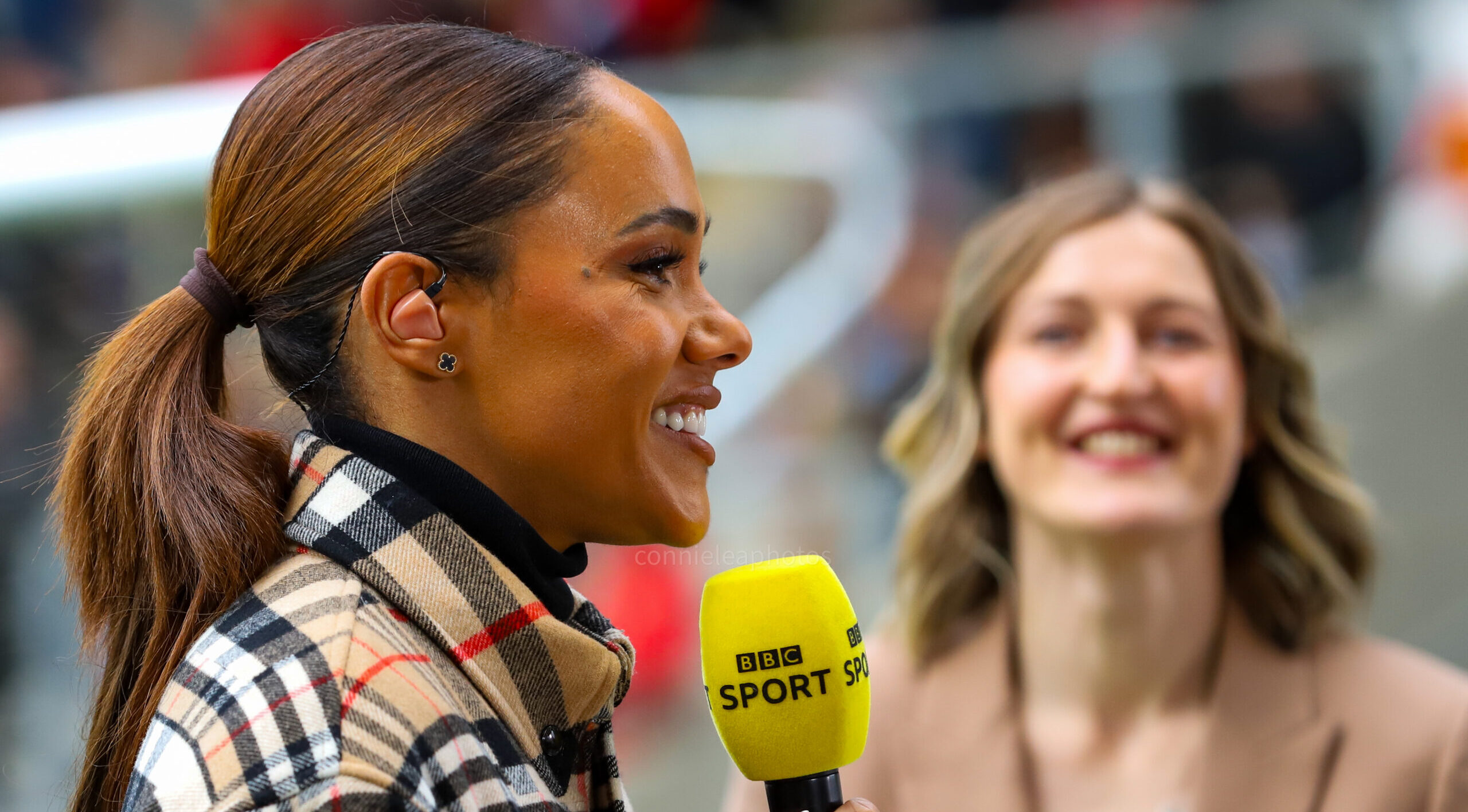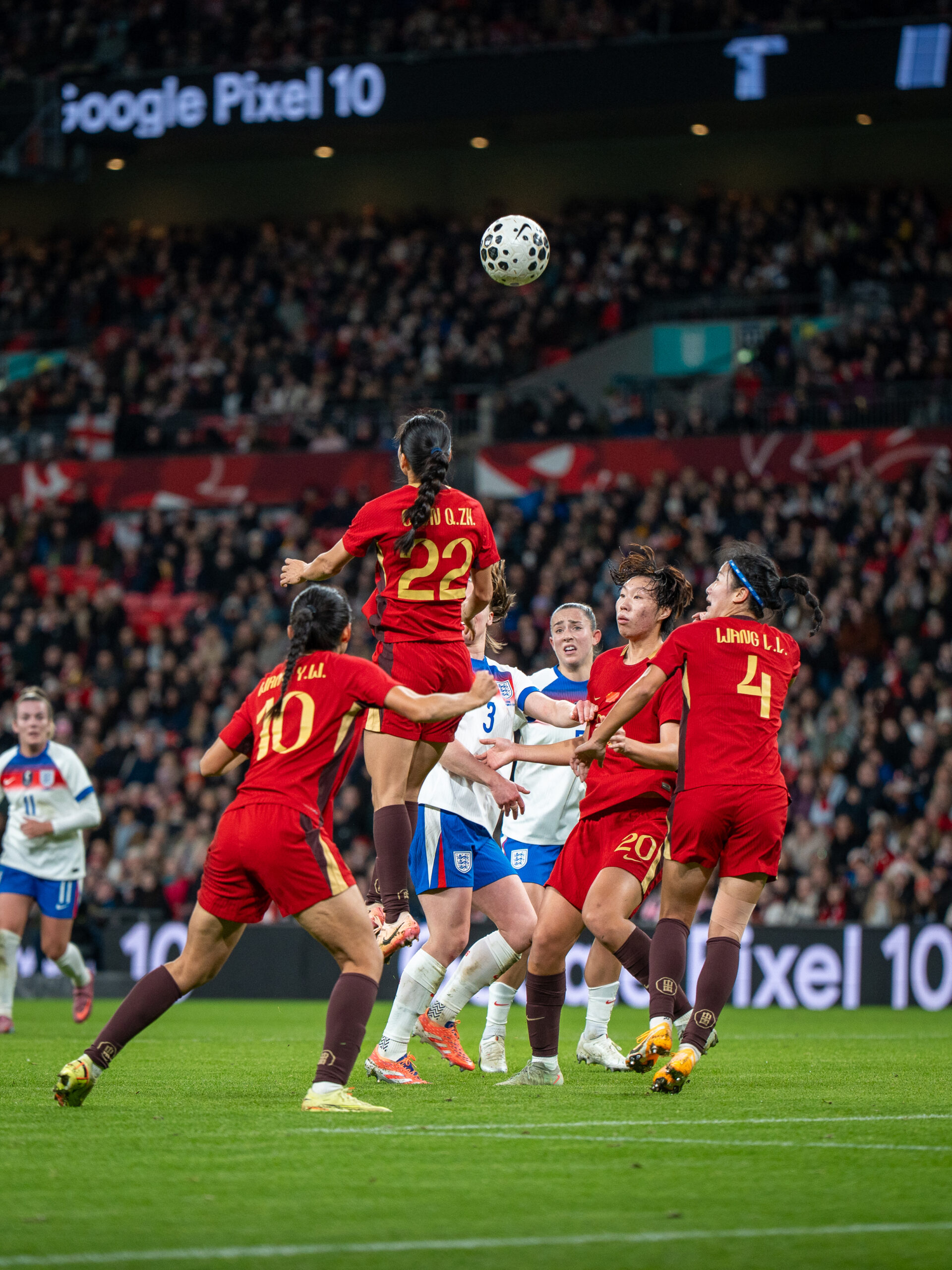Within the 2023/24 academic year, around 20% of students registering to study a NCTJ-accredited sports journalism course across the UK were women. This has increased from 7% within the 2021/22 academic year and 14% in the 2022/23. The visibility of the Lionesses winning the European Championship in 2022, had a significant impact in the increase of young girls playing grassroots football: with 129,000 more girls playing regularly in schools and 10,300 more girls playing competitively. Highlighting that if they can see it, they can be it. So how does this link to the representation for female journalists within the sporting industry?
Traditionally, the sporting industry is recognised as being ‘male dominated’. This stereotype is reflected within the gender disparity within sports journalism. It is an issue that has been rectified somewhat as we see an increase in coverage of female sports as well as sports coverage completed by women, however the depth that it goes into is incomparable to equality. The underrepresentation of women within sports journalism limits the diverse perspectives that can be presented, enforcing the stereotypes that are current upon women in the sporting construction.
Recently, the gender barriers have been challenged by an exposure of female journalists reshaping the needed representation for female sport. With their exclusive talent, individuals are breaking the harsh stereotypes that corner females wanting to break into such a male dominated industry. Spotlighting some examples of female sports presenters, Alex Scott, Farah Williams and Gabby Logan. Specifically, Alex Scott was named Broadcaster of the Year within this year’s Women’s Football Awards, rewarding her impressive career within football and journalism. When receiving this award she quoted:
“This is where we need our male allies. Not just to celebrate us in the good moments, but we need you to stand up and support us in the hard moments also… Sport is a better place with women in it.”
The visibility of women’s sport is important. The way female journalists have demonstrated the unrecognised treasures of individual athletes’ stories, experiences and challenges has proven the significance and power of females belonging within the sports industry. Away from broadcasting, there has been an emergence in popularity as well as use of podcasts to provide insight into the stories not represented by everyday journalism. Three Players And A Podcast, hosted by Izzy Christiansen and Caroline Barker has recently seen an episode with Jordan Nobbs and Nikita Parris appearing as new permanent guests to give their experience with a combined 138 caps for international football.
Another podcast shedding light on women in sport is Rugby Rodeo hosted by Jess Breach and Ellie Kildunne holding the aim of offering an insight into the world of women’s rugby alongside inspiring stories from athletes within the sport. The individuality of each podcast enables for the comprehensive and inclusive presentation of stories that aren’t commonly represented by main sports platforms. This is significant as it outlines key influences on personal experiences such as motherhood and injuries.
Although the rise in coverage for women in sport is clear, female journalists and presenters are faced daily with sexist based hate that arises. Not only this but they also face a lack of opportunities and gender bias.
A recent occurrence is the online hate created by Joey Barton with his wrongful, sexist views against the work of women within sport. One repulsive remark made by him expressed that “Women shouldn’t be talking with any kind of authority in the men’s game. Come on. Let’s be serious.” This awful comment disregards all of the hard work that each individual female journalist and pundit puts into their career journey. Gary Neville stood out in support of women against Joey Barton:
“It’s bloody hard work for women to succeed in sport and media as it is, without this stuff.”
It is incredible to see the amazing increase in women’s sport coverage, especially for football. However, as apparent in the topics discussed, there are still many aspects that are required for improvement in order to reach equality.
Links:
https://www.popsugar.co.uk/fitness/alex-scott-womens-football-awards-49366815
https://podcasts.apple.com/gb/podcast/rugby-rodeo/id1767430765



